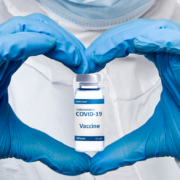 By NCL Health Policy intern Talia Zitner
By NCL Health Policy intern Talia Zitner
Every morning, I wake up with a new decision to make. Am I going back to campus? Or am I spending the Fall semester taking online classes from the comfort of my childhood bedroom? I’m a rising sophomore at Wesleyan University, and to add insult to injury, I’m also an incoming transfer student. My internal debate about going back to school is near-constant, and despite weighing the pros and cons of each, I still can’t seem to come to a comfortable conclusion.
Around the country, colleges and students are faced with this same, nearly impossible challenge. If schools can’t or won’t open in the fall, they risk closing forever without tuition money. If they do allow students to come back to campus, and an outbreak occurs, they put students, professors, faculty, staff, their families, and the greater community at risk. Students rely on colleges to be their home away from home, a place where they can work and learn in a structured, safe, and healthy environment, not to mention the social benefits.
Consequently, coming back to campus poses a serious financial and ethical question. Like anything else, college and higher education is a business. Consumers want to get the most for their money, and the colleges and universities need consumers to engage to have a sustainable business model. The pandemic has shifted the conversation in many areas of life, higher education included.
This issue is especially complicated because it can be broken down from multiple perspectives. For example, an economic point of view argues that colleges are only re-opening because they need the money. Like many other businesses, they stay open because they have no other choice. Without the money generated through tuition and other forms of revenue like donation and state funding, it would take years for schools to recover from the impact of COVID. But college is a substantial investment for families. Why should consumers be expected to pay full (or reduced) tuition for an experience that is more like a monastery than college? Will the investment really be worth it if schools are simply shut down again because of an outbreak at a campus party?
On the other hand, if students aren’t in school come fall semester, what else would they be doing? Most students are hard-pressed to find a job or internship that’s worth taking a semester off for in this environment. And time off may push back a student’s graduation time, putting them behind the rest of their peers. For very legitimate reasons, students want to come to campus and keep their college experience intact.
This seems to be where my own expectations fall. I have no idea if the situation will improve between now and the spring semester. To me, the only course of action is to enjoy the experience that I will have, even if it means wearing a mask.
Talia is a Washington, DC native and a rising sophomore at Wesleyan University, where she is studying English. Beyond health policy, Talia’s interests are in journalism, law, and social justice.



 By NCL Health Policy intern Talia Zitner
By NCL Health Policy intern Talia Zitner












